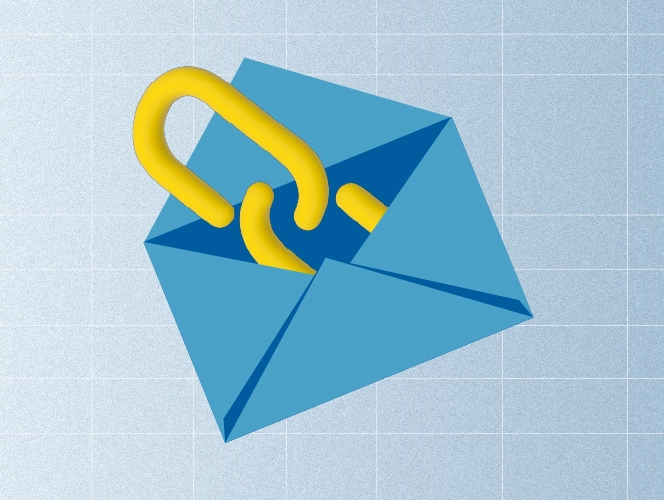Greetings! If you’re reading this guide on link building for SEO, chances are you’re looking for ways to improve your website’s ranking, right? Well, you’ve come to the right place!
You probably already know how important are backlinks when it comes to moving your website higher on Google’s search results. But why link building is important goes beyond just getting any link—it’s about getting the right kind of backlinks that add value. But the real challenge is figuring out how to get those backlinks and make them work for you.
In this article, we’ll show you how we approach link building for SEO into simple, actionable steps.
Excited to get started? Keep reading!
Introduction to Link Building
What Is Link Building?
So, what exactly is link building? Link building is an effective SEO strategy that refers to the process of getting other websites to link to yours.
Sounds simple, right?
But did you know that 79.7% of SEO experts believe link building is a must for any SEO strategy? That’s a pretty big deal!
Why does it matter? The goal is to improve your website’s rankings, make your backlink profile more diverse, and, most importantly, drive more organic traffic to your website.
And when you focus on getting the best SEO backlinks, you’ll be on your way to higher authority and better search results.
Why is Link Building Still Important in 2025?
Good backlinks not only improve your search engine ranking but also drive valuable organic traffic. So, why is link building important for SEO?
Better Rankings
We know that search engines heavily prioritize the number, relevance, and authority of backlinks to your website. That’s why we focus on building a diverse backlink profile, helping your website rise through search engine rankings and strengthening your link building for SEO strategy.
This approach makes all the difference in achieving long-term success.
It’s not just our view; experts support this, too.
- Let’s start with Google, which “uses links as a signal when determining the relevancy of pages and to find new pages to crawl.”
- According to Ahrefs, backlinks are important, as “search engines view best SEO backlinks as votes of confidence from other websites.”
As you can see, the facts speak for themselves. Want better rankings? Start working on your backlink profile today and see your link building for SEO campaigns to drive better search engine rankings.
Our specialists offer professional SaaS link building, which involves getting relevant SaaS backlinks for your business to boost its rankings and make it more visible.
You can check out our link building pricing to see how we can help your business grow.
Improving Domain Rating (DR)
So, we always focus on building relevant backlinks from reputable websites to strengthen your domain’s authority.
Domain Rating (DR) is a metric from Ahrefs that shows how powerful your backlink profile is.
DR is measured on a scale of 0 to 100, with 100 being the strongest. While there’s no one-size-fits-all “good” DR score, higher ratings generally signal stronger authority and improved SEO.
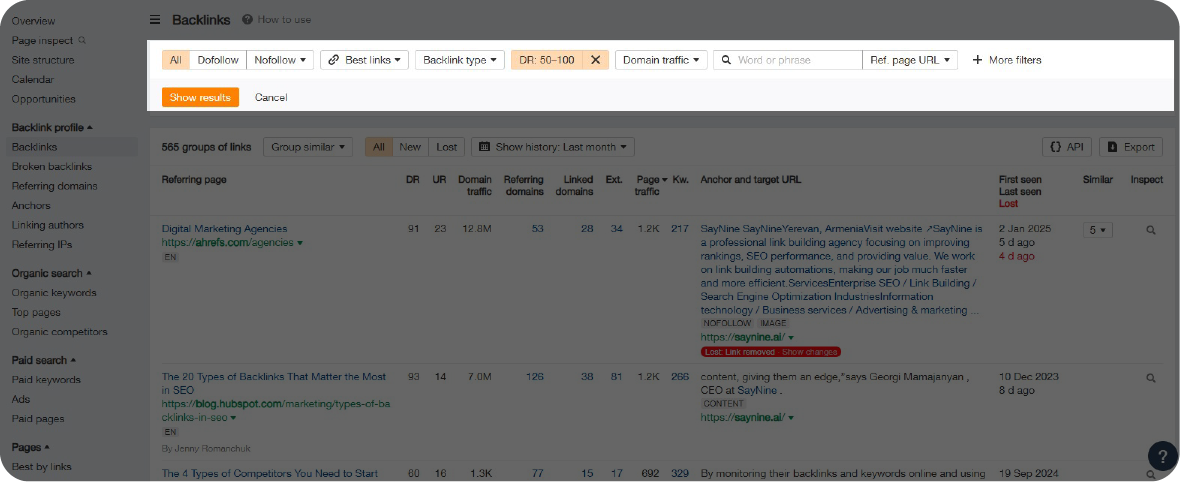
As you can see in the screenshot, this is where your DR is displayed, giving you an idea of how strong your backlink profile is.
In short, we target the best backlinks for SEO; the higher the better, and that’s what we aim for!
More Organic Traffic
So, why is link building important? One key benefit of link building for SEO is the increase in organic traffic. It is another advantage of link building for SEO, which we could not leave unnoticed.
When you create link-worthy content, the chances are high to get the best SEO backlinks from popular and relevant websites. These, in turn, will pass the link juice to your content and will improve overall website traffic in the long term.
And, of course, more backlinks = more website visitors
So, if you want to increase your organic traffic, focus on creating useful content. To do so, you will need to learn who your audience is, their interests, and their needs. If you’ve noticed a drop in traffic, you should conduct a website audit, and you can use a website audit template to simplify the process.
After all, your readers will be the main consumers of your content, so their preferences should be taken into consideration.
Now, how important are backlinks? Simply put, they are important for driving organic traffic to your website.
Increased Brand Visibility
As a result, when you are building backlinks from reputable websites, your brand exposure and credibility significantly improve.
This way, you show that your website is a trustworthy source of information, and people can rely on it. Besides, users will feel more confident in working with your business after seeing links from known companies.
A strong guide to revenue operations can also drive significant revenue to your business by attracting good backlinks and boosting your online presence. These backlinks not only improve visibility but also increase trust with potential customers, leading to more conversions. Over time, this strategy can result in sustainable growth and a stronger bottom line.
Now, let’s discover the difference between good and bad links.
Good Links vs. Bad Links
Backlinks in SEO are highly important, and this is a fact! But have you ever wondered if all links work for your website? There are good links, and there are also bad links.
Let’s first understand the difference between good and bad links.
What Makes a Good Link?
So, our specialists don’t just build backlinks—they build the best backlinks for SEO.
Here’s what makes a strong backlink in SEO:
- Relevance – A quality backlink should come from a website that shares a related topic or industry.
- Natural Anchor Text – Backlinks should flow naturally within the content, not feel forced or out of place.
- Trusted Source – A backlink from a reputable and well-established website carries more weight than one from a low-quality domain.
So, now do you want to build a backlink profile that actually works?
You should pay attention to link quality, placement, and relevance—because in SEO, not all links are created equal.
Further Readings;
What Makes A Bad Link?
Not all backlinks help your SEO—in fact, some can do more harm than good. That’s why, we always play by Google’s rules, and here’s the deal: any link building tactic meant to manipulate search rankings is a big red flag.
Toxic backlinks can hurt your website’s rankings. Here’s what to watch out for:
Toxic Links:
- Come from a “link farm,” which is a set of websites that link to each other to improve their search rankings
- Come from websites irrelevant to the linked content
- Come from websites that aren’t indexed by Google
- Come from online directories
- Come from websites with illegal content (e.g. hate speech)
- Are paid links
- Are placed in widgets
- Are hidden in a site footer
- Are forced in blog comments
- Are flagged as sponsored
So, if you don’t want your link building for SEO efforts to backfire, always check the health of your backlink profile.
How to Find and Remove Bad Links?
We have already discussed the importance of monitoring your backlinks on a regular basis in our link building for SEO guide.
But let’s get real—effective and regular backlink analysis is the only way to spot bad links and take all the necessary steps to get rid of them for better link building for SEO results.
All you need is a reliable backlink monitoring tool. We prefer to use Ahrefs, but you are free to choose another tool that best meets your needs and requirements.
Follow these simple instructions to find toxic backlinks on Ahrefs.
Option 1: You can use the Anchors report to see the words and phrases people use when linking to you.
If you see many exact matches of keywords you’re trying to rank for, it’s a sign you have paid or other links that manipulate rankings.
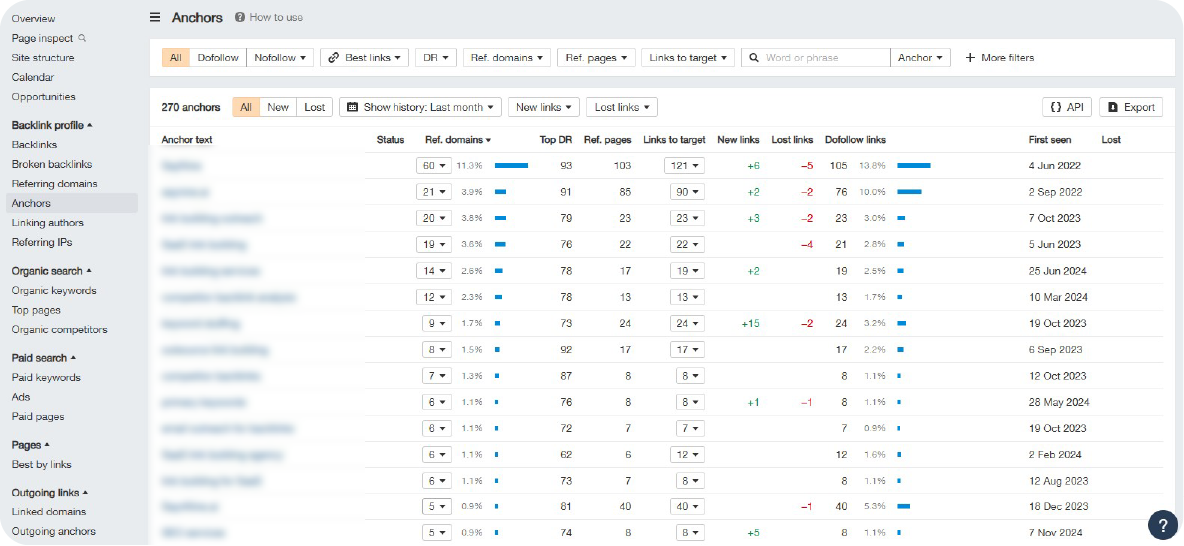
Option 2: You can also use the Backlinks report to dig even deeper.
Click on “Backlinks” on the left sidebar.
You can set a low DR, for instance, up to 10. If several websites appear, they are big and probably spammy.
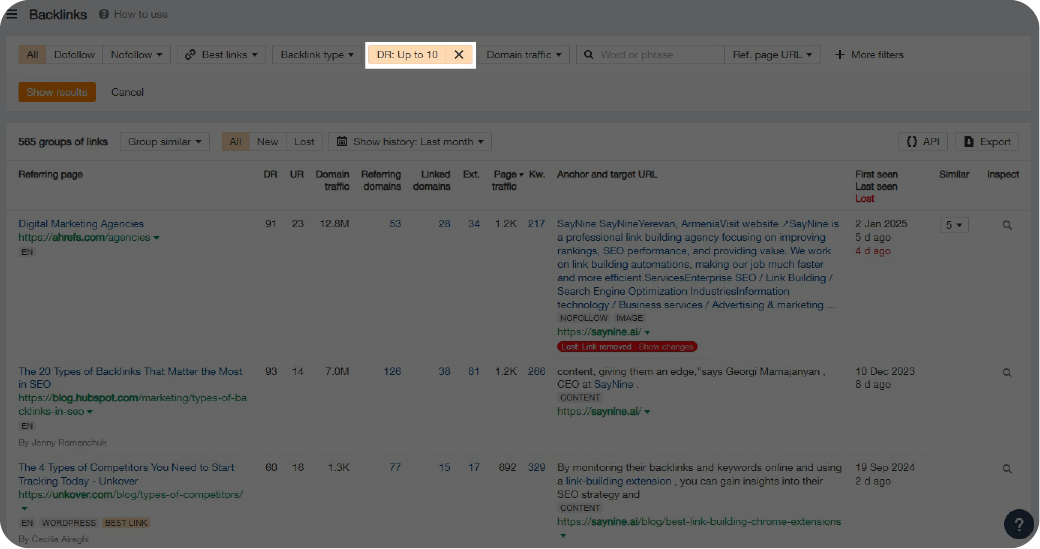
Here, the Backlinks report lets you explore further.
So, once you’ve found bad backlinks, it’s high time to remove them.
Link Building Outreach: Our Step-by-Step Approach
Backlink outreach is a key part of our backlink strategy.
To make sure our emails grab attention, we put extra effort into creating messages that really catch the eye.
If we don’t catch their attention, they might just ignore us. That’s why we use some neuromarketing techniques to make our emails more engaging and increase our chances of getting a response. But don’t worry, it’s not as complicated as it seems.
To make things easier, we also use outreach tools to simplify and automate the process. It’s all about working smarter, not harder.
Interesting, right?
So, let’s break it down.
Create a List of Domains
First, we find potential websites we’d like to get backlinks from. We usually focus on relevant companies that have a strong online presence. Backlink management plays a key role here, ensuring we prioritize high-quality sites that align with our SEO goals and long-term strategy.
Before reaching out, we always check the domain rating (DR) on Ahrefs.
Next, we search for the right people on LinkedIn to make our outreach more personalized.
To keep everything organized, we use Google Sheets. Our ideal spreadsheet includes:
- Domain name
- DR and traffic (50+ DR + 1000+ traffic)
- Contact details
- Outreach status (e.g., contacted, follow-up, reply received, etc.)
We also automate the process as much as possible. For instance, use Ahrefs for checking a target domain’s DR and traffic, and Mailmeteor for sending mass emails and automating the follow-up process, and more.
Now that we’ve built the list, the next step is finding and verifying email addresses for effective link building outreach.
Let’s dive into that.
Find and Verify Email Addresses
So, the best link building plans only work if we’re reaching the right people with the right emails. But how do we make sure our outreach hits the mark?
The last thing we want is to waste time contacting the wrong person. So, we focus on getting accurate email lists. By ensuring accuracy, we can reduce email bounce rate and improve the effectiveness of our outreach. This helps us speed up the process and avoid delays in our link building proposal.
Who do we contact? We typically target employees in the marketing department, but sometimes we also reach out to others, like content managers or client success managers, especially if we’re not getting a response from our primary contact.
What if our main contact doesn’t respond? No problem – we have other options.
Here’s how we do it:
- First, we check the company’s LinkedIn page to find employees with the right roles.
- We scrape the profiles, picking up the person’s name, position, and profile URL.
- Next, we make smart guesses about their email address using common formats like [email protected]. Then, we use the Clearbit Chrome extension to confirm the email is correct.
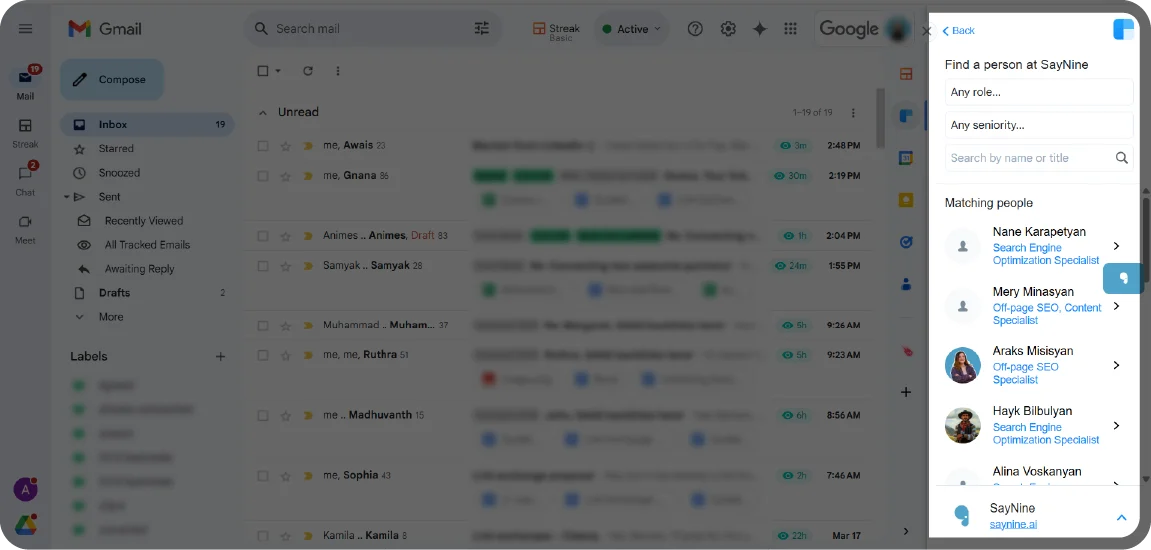
In the right corner, you can see how we enter a company domain, and it shows employee roles.
Why do we do this? Well, we want to make sure we’re emailing the right person. That’s why we also use email finder tools for an even quicker result.
But wait – before we send anything, we make sure every email is verified.
So, link building strategies are only as good as the emails they’re sent to. And a successful link building proposal starts with getting that right!
Create a Good Email Template
So, we’ve found and verified the email addresses. Now what?
You might think the hard work is over, but the next challenge is even bigger: getting people to actually care about your offer.
How do we make sure our emails get noticed? The answer is simple: we focus on crafting a personalized link building outreach templates that grab attention and gets results. So, without this step, even the best backlink strategies won’t work.
But, how do we do it? Here’s our approach:
- Start with the recipient’s name in the subject line. It shows we’ve taken the time to make it personal.
- Introduce ourselves clearly. We don’t want to come across as a scam, so we make sure they know who we are right from the start.
- Keep it clear and direct. We explain exactly why we’re reaching out.
- Show what they’ll gain. What’s in it for them? So, the more we highlight the benefits, the more likely they are to respond.
So, personalization is key to boosting cold email deliverability and ensuring your emails aren’t left unopened and don’t get lost in the inbox.
Follow Up
Sometimes, people get busy, and your email might slip through the cracks. But a quick follow-up email can do the trick without being too pushy.
We usually send our first follow-up after a week. In this email, we might mention additional exchange domains to keep the conversation fresh.
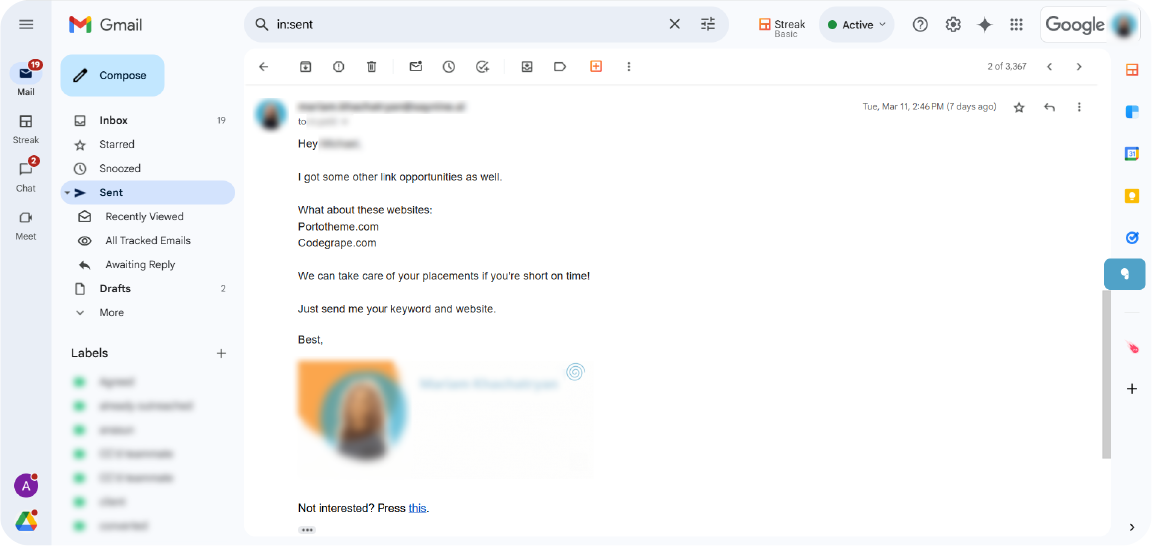
Here, you can see how we follow up with fresh exchange domains to keep the conversation going.
If there’s still no response, we wait a few more days—2 to 3 days—and send a second follow-up. This time, we keep it light with just a sad emoji 😞 to show we’re a bit bummed but still hopeful for a response.
Remember, if they’re not interested, that’s okay. Not every opportunity will work out, and it’s important to move on and keep looking for new ones.
How to Build Relevant Backlinks: Our Team’s Insights
Now comes the exciting part—how to actually get quality backlinks!
We’ve talked about why link building for SEO matters, but now it’s time to dive into our strategies.
So, how do we do it?
Link exchange is a powerful practice in SEO, where two websites agree to link to each other’s content. When done right, a link exchange for SEO can be highly beneficial.
But, is link building still relevant to SEO? The answer is absolutely!! Many SEO specialists argue that it remains a key element in improving your website’s rankings.
However, we focus on a more effective and natural method — a three-way link exchange. This is where Domain A links to Domain B, Domain B links to Domain C, and Domain C links back to Domain A. This approach allows us to build high-quality backlinks while staying fully Google-approved.
Our link building specialists share their tips for effective link exchanges;
- Exchange links only with people whom you can trust and rely on.
- Keep spreadsheets with your link exchange partners to track your requests more effectively.
- Collect contact details such as email addresses, LinkedIn profiles, and Slack channels from your SEO link exchange partners to reach out to them across different channels.
- Don’t bother your partners every single day.
- Don’t make any promises if you can’t keep them.
- Link exchanges should not be your only link building strategy. Use a mix of different tactics, such as guest posting and broken link building.
These link building tips can help you get along with your partners and build good relationships with them.
After all, link building collaboration highly depends on how well you interact with your partners.
How to Do Competitor Backlink Analysis
To build the best backlink strategy, you need to know what your competitors are doing. That’s exactly what our specialists handle.
We track competitor backlinks to discover new link building opportunities and stay ahead in the game. Here’s how we do it:
First step: We check if the website is actually our competitor.
Next: We analyze their backlink profiles to find websites that link to them but not to us.
Our goal? Reach out to those websites and build new connections.
By doing this, we also identify trending content ideas and understand what works best for our target audience. Cool, right?
What tools do we use to check competitor backlinks? Let’s explore that in the next part.
Best Link Building Tools: Our Top 3 Picks
Link building strategies cannot be successful without proper tools in place. Let’s take a look at three essential link building tools we use, along with their benefits and drawbacks.
Ahrefs
Ahrefs is one of the key tools our specialists use to refine and optimize SEO strategies. From tracking backlinks to analyzing competitor data, it’s an essential part of our toolkit.
This is the Ahrefs dashboard, where we track backlinks and analyze competitor data.

Pros:
- Competitor research
- Keyword Research
- Website Audit
- Content Research
- Rank Tracking
- Mentions Monitoring
- Free SEO tools like SERP checker, Website Traffic Checker, Keyword Generator, and more.
Cons:
- Pricey
- Doesn’t offer a free trial
- Offers limited integrations
- With so many features, it can be difficult and overwhelming sometimes for beginners to get started
Further readings:
What is Ahrefs? The Link Building Tool You Really Need
Best Link Building Tools: 11 Must-Haves For Building Backlinks In 2024
Google Sheets
Google Sheets is our go-to tool for keeping things organized. It’s perfect for tracking who we’ve contacted, what stage we’re at, and what’s next.
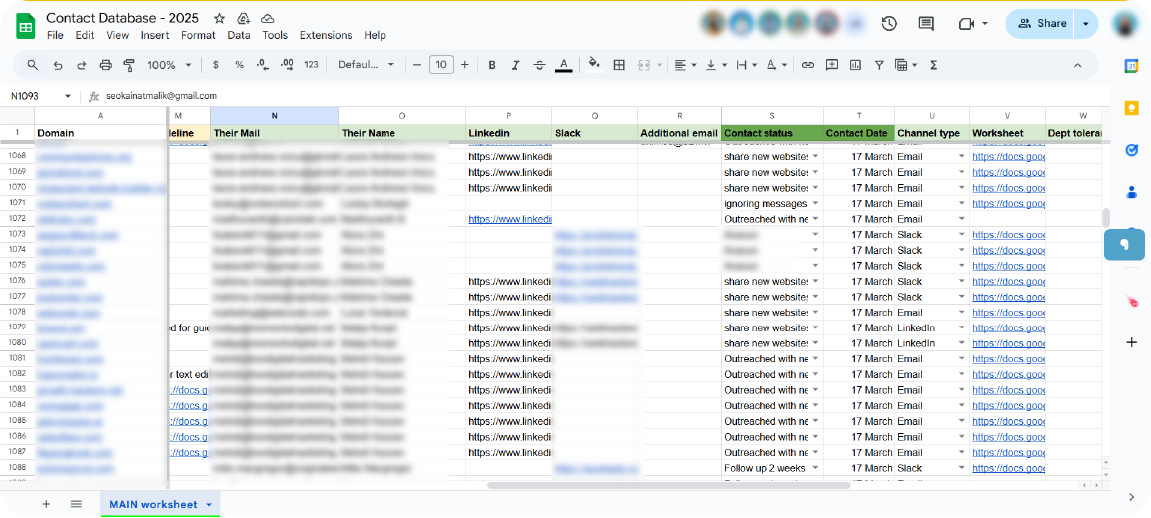
IIn this screenshot, you can see we track outreach progress..
In fact, when we talk about the best link building tools, Google Sheets plays a key role in making our workflow efficient. It’s ensuring that every step of the outreach process is clear and well-managed.
Pros:
- We use Google Sheets for several tasks, like finding backlink exchange opportunities, reaching out, and tracking progress. It keeps everything organized and structured, making our link building process smoother.
- It also helps our team work together on link building by letting everyone update and share information in real time.
Cons:
- Limited storage
- Depends on internet connection
- Can be complicated for new users
Mailmeteor
Mailmeteor is a simple yet effective tool that lets us send personalized emails in bulk through Gmail.
For our link building strategies, we use Mailmeteor to simplify the process of contacting potential partners. It makes outreach efficient, saving us time while still keeping emails personal and impactful.
Pros:
- Real-time email tracking
- Contact segmentation and follow-up
- Scheduled mail merges
- Automated email sending
- Mail merge with attachments
- Spam checker
- Sending emails from different aliases
- Adding Cc or Bcc recipients
- Unsubscribe management
Cons:
- No drag and drop builder
- Mailmeteor follows the Gmail sending restrictions, so you’re limited to sending a maximum of 2,000 emails per day.
- Works only with Gmail.
- It is not suitable for transactional emails, like account creation emails or shipping confirmations.
To Wrap Up
We’ve covered the basics, the must-knows, and the must-avoids. Now it’s your turn to turn these insights into action.
Good SEO in 2025 starts with valuable backlinks, not more of them. Focus on the links that matter most for your site’s growth.
Need help getting started? Feel free to reach out to our team—we’ll be happy to learn about your project and see how we can help your website grow!
FAQs About Link Building for SEO
What makes the best SEO backlinks?
The best SEO backlinks come from authoritative, relevant websites in your industry.
Can link building hurt my website?
Yes, if you use unethical practices like buying links or participating in link farms, it can lead to penalties.
How many backlinks should I aim for?
Quality is more important than quantity. Aim for a few relevant backlinks rather than numerous low-quality ones.
Is link building an ongoing process?
Absolutely! SEO and link building are continuous processes. To stay competitive, you should keep building good backlinks regularly.




